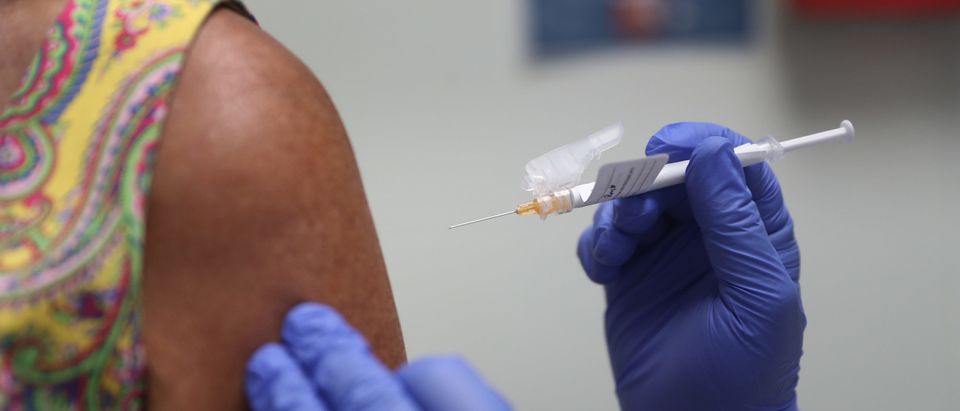The percentage of people who said that they would get a coronavirus vaccine if one becomes available has fallen from 72% in early April to 51%, a Morning Consult poll found.
The weekly poll, which asked U.S. adults about the coronavirus vaccine, found that there was a double-digit decrease of people who said they would get the vaccine among men, women, Democrats, Republicans and people of all levels of education.
Since late Feb., @MorningConsult has polled weekly on whether people say they would get a COVID-19 vaccine if one became available.
In early April, 72% of the public said they would. That share has fallen 21 points, to 51%.
More takeaways: https://t.co/A26ReuJMPr pic.twitter.com/xBzVMkZQHn
— Matt Bracken (@MattBracken) September 14, 2020
The percentage of people who said they would get the vaccine remained relatively steady, the Morning Consult poll found. In September, however, there was an 8% decrease – coinciding with increased scrutiny towards the Food and Drug Administration (FDA), with over 1 in 4 people saying that the FDA’s coronavirus decisions are politically motivated. The president recently said that there could be a coronavirus vaccine available by October. (RELATED: ‘I Would Not Trust Donald Trump’: Kamala Harris Says She’d Be Wary Of An Early Coronavirus Vaccine)
Democrats are the most likely to say they will get the coronavirus vaccine, with 61% saying they would take the vaccine compared to 47% of Republicans and 46% of independents, the poll found. Across the political spectrum, willingness to get a vaccine has fallen – around mid-March and early April, 81% of Democrats, 69% of Republicans, and 66% of independents said they would get the vaccine.
5 months ago, 81% of Democrats and 69% of Republicans said they’d get a COVID-19 vaccine.
Now, 61% of Democrats and 47% of Republicans say they’d get one. https://t.co/A26ReuJMPr pic.twitter.com/TW9AgWcxue
— Matt Bracken (@MattBracken) September 14, 2020
As health experts get closer to developing a coronavirus vaccine, they say that the trend of people unwilling to take a vaccine is concerning.
Dr. Bruce Gellin, president of global immunization at the Sabin Vaccine Institute and the former director of the National Vaccine Program Office at the Department of Health and Human Services, said that it’s unclear whether or not people will actually take the vaccine. (RELATED: AstraZeneca Is Pausing Studies On Their Coronavirus Vaccine After Individual Experienced Severe Symptoms)
“There’s a difference between people’s intentions and their actual behavior,” he noted. Still, data showed “an urgent need” to understand the thought process of people who say they wouldn’t get a vaccine, he said according to Morning Consult.
Dr. Monica Schoch-Spana, Johns Hopkins Center for Health Security medical anthropologist and senior scholar, said that because of the stress caused by coronavirus lockdowns “there’s been a lot of anti-science, anti-public health framing of the pandemic.”
“You also have individuals who have received mixed messages about the severity of the pandemic itself, that it’s something that could be a miracle and go away,” she added according to Morning Consult. “So you have this reduced perception of disease risk. People are given less reasons to see the need for a vaccine.”


